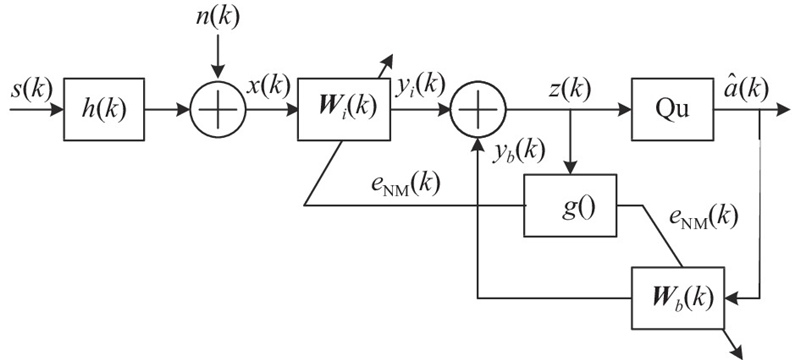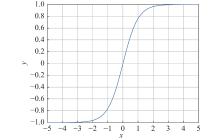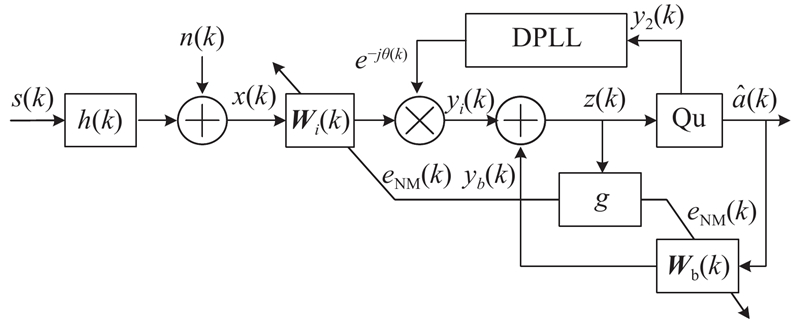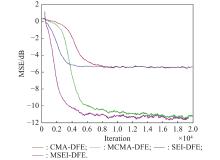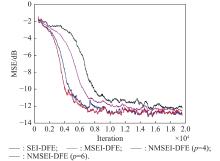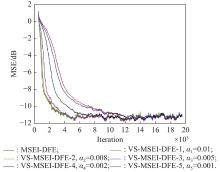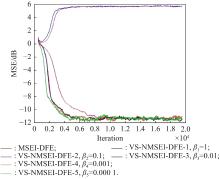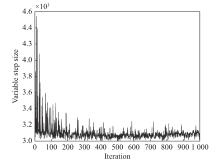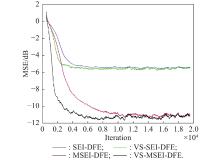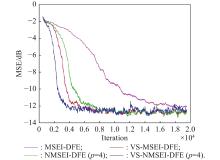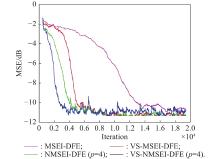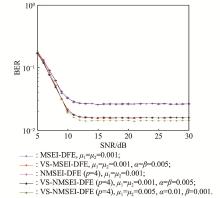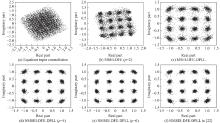| 1 |
STOJANOVIC M Recent advance in high speed underwater acoustic communication. IEEE Journal of Oceanic Engineering, 1996, 21 (2): 125- 136.
doi: 10.1109/48.486787
|
| 2 |
KILFOYLE D B, BAGGEROER A B The state of the art in underwater acoustic telemeiry. IEEE Journal of Oceanic Engineering, 2000, 25 (1): 4- 27.
doi: 10.1109/48.820733
|
| 3 |
SURYA P M, AHAMED S R A distributed arithmetic based realization of the least mean square adaptive decision feedback equalizer with offset binary coding scheme. Signal Processing, 2021, 185, 108083.
doi: 10.1016/j.sigpro.2021.108083
|
| 4 |
WANG Z Z, CHEN F J, YU H, et al Sparse decision feedback equalization for underwater acoustic channel based on minimum symbol error rate. International Journal of Naval Architecture and Ocean Engineering, 2021, 13, 617- 627.
doi: 10.1016/j.ijnaoe.2021.07.004
|
| 5 |
MALARKOD A, LATHA G, SRINIVASAN S Passive time reversal acoustics for horizontal shallow water acoustic communication to mitigate the effect of inter-symbol interference. Applied Acoustics, 2021, 174, 107783.
doi: 10.1016/j.apacoust.2020.107783
|
| 6 |
JIANG W H, TONG F Exploiting dynamic sparsity for time reversal underwater acoustic communication under rapidly time varying channels. Applied Acoustics, 2021, 172, 107648.
doi: 10.1016/j.apacoust.2020.107648
|
| 7 |
LIN Y, JOU S, SHIUE M. High throughput concurrent lookahead adaptive decision feedback equalizer. IET Circuits Devices System, 2012, 6 (1): 52−62.
|
| 8 |
SHAIK R A, CHAKRABORTY M A block floating point treatment to finite precision realization of the adaptive decision feedback equalizer. Signal Processing, 2013, 93 (5): 1162- 1171.
doi: 10.1016/j.sigpro.2012.11.024
|
| 9 |
ZHANG D L, XIAO S, ZHANG Y W, et al Decision feedback equalization algorithm based on sparse and time-varying underwater acoustic channel. Journal of Harbin Engineering University, 2019, 40 (5): 892- 898.
|
| 10 |
NING X L, LIU Z, LUO Y S, et al Fast convergence adaptive equalization algorithm for underwater acoustic channels. Systems Engineering and Electronics, 2010, 32 (12): 2524- 2527.
|
| 11 |
SHALVI O, WEINSTEIN E Super-exponential methods for blind equalization. IEEE Trans. on Information Theory, 1993, 39 (2): 505- 519.
|
| 12 |
ZHANG Y G, JIN D Q, CHEN J A model-based variable step-size strategy for proximal multitask diffusion LMS algorithm. Digital Signal Processing, 2021, 117, 103199.
doi: 10.1016/j.dsp.2021.103199
|
| 13 |
NING X L, ZHANG L S, LIU Z K Variable step size LMS equalization algorithm based on adaptive mixed-power parameter in underwater acoustic channels. Systems Engineering and Electronics, 2015, 37 (9): 2141- 2147.
|
| 14 |
ZHANG J W, YU H, ZHANG Q H Improved variable step-size LMS algorithm based on hyperbolic tangent function. Journal on Communications, 2020, 41 (11): 116- 123.
|
| 15 |
YU C, GU R, WANG Y Y The application of improved variable step-size LMS algorithm in sonar signal processing. Proc. of the IEEE 4th Information Technology, Networking, Electronic and Automation Control Conference, 2020, 1856- 1860.
|
| 16 |
ALAL B, YANG X P, WU X C, et al Efficient direction-of-arrival estimation method based on variable-step-size LMS algorithm. IEEE Antennas and Wireless Propagation Letters, 2019, 18 (8): 1576- 1580.
doi: 10.1109/LAWP.2019.2923700
|
| 17 |
SUI Z P, YAN S F Noise robust variable step-size LMS algorithm and its application in OFDM underwater channel equalization. Systems Engineering and Electronics, 2020, 42 (7): 1605- 1613.
|
| 18 |
CHEN X, NI J G Variable step-size weighted zero-attracting sign algorithm. Signal Processing, 2020, 172, 107542.
doi: 10.1016/j.sigpro.2020.107542
|
| 19 |
HUANG W, LI L D, LI Q, et al Diffusion robust variable step-size LMS algorithm over distributed networks. IEEE Access, 2018, 6, 47511- 47520.
doi: 10.1109/ACCESS.2018.2866857
|
| 20 |
SUN L J, SUN C A new dual-mode blind equalization approach based on modified super-exponential iteration algorithm. Journal of System Simulation, 2005, 17 (11): 2604- 2605.
|
| 21 |
ZHANG Y B, ZHAO J W, GUO Y C, et al A fractionally-spaced blind equalization algorithm for eliminating continuous phase rotation of underwater acoustic channel. Acta Acustica, 2010, 35 (1): 59- 67.
|
| 22 |
NING X L, LIU Z, LUO Y S, et al Improved super-exponential iteration blind equalization algorithm for carrier phase recovery in underwater acoustic channels. Journal of Xidian University, 2012, 39 (1): 151- 156.
|
| 23 |
WANG J L, LIU Z J, YANG H, et al Blind equalization algorithm for the QOTDM system in multi-path fading channels. Journal of Xidian University, 2009, 36 (5): 767- 777.
|
| 24 |
ABRAR S, SHAH S I New multi-modulus blind equalization algorithm with relaxation. IEEE Signal Processing Letters, 2006, 13 (7): 425- 428.
doi: 10.1109/LSP.2006.871860
|
| 25 |
GELLER B, CAPELLANO V, BROSSIER J Equalizer for video rate transmission in multipath underwater communications. IEEE Journal of Oceanic Engineering, 1996, 21 (2): 150- 156.
doi: 10.1109/48.486790
|
| 26 |
FALAHATI A, WOODWARD B, BATEMAN S C Underwater acoustic channel models for 4800b/s QPSK signals. IEEE Journal of Oceanic Engineering, 1991, 16 (1): 12- 19.
doi: 10.1109/48.64881
|
 ), Bing FU1(
), Bing FU1( ), Linsen ZHANG1,*(
), Linsen ZHANG1,*( ), Jiahao QIU2(
), Jiahao QIU2( ), Lei ZHU3(
), Lei ZHU3( ), Chengxu FENG1(
), Chengxu FENG1( )
)

